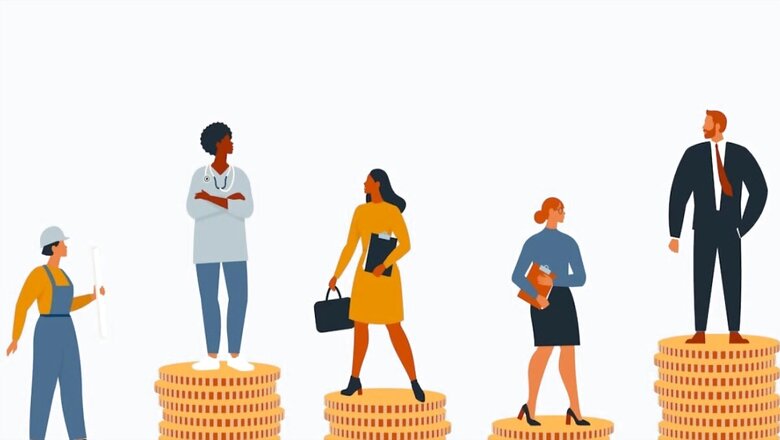
views
Inequality, we are told, is a big problem for any economy, especially an emerging one like India. In line with this theory, a majority of development economists and policy experts believe that inequality is a big concern in our country. According to a poll conducted by Reuters, almost 85 per cent of experts said that they were not confident about a significant reduction in economic inequality over the next five years.
To be sure, it is not the first time in the recent past that inequality has been cited as a big problem. Last month, a group of economists called the World Inequality Lab, which including the renowned French economist Thomas Piketty, came up with a study which said, “The Billionaire Raj headed by India’s modern bourgeoisie is now more unequal than the British Raj headed by the colonialist forces.”
It is time to scrutinise the basic postulate of the World Inequality Lab and others who hold similar views: that excessive economic inequality is bad. This is what Piketty said in an interview: “I think inequality is fine, as long as it is in the common interest. The problem is when it gets so extreme, when it becomes excessive.”
But whose problem, Mr. Piketty? It has surely not been a problem for the people who, in his estimation, have suffered. Regarding developments in the Western world, Piketty said that “one of the lessons of the 20th century is that 19th century inequality was not useful for growth.” He is also unhappy about inequalities in the US: “So in the United States, you know, the share of national wealth going to the bottom 50 per cent is just 2 per cent. And the next 40 per cent, which you can call the middle class, are getting, you know, about 23 per cent, and then you have 75 per cent for the top 10.”
All that may be true, but the upshot is that the per capita income in the US is around $85,370 and in the rich nations (G7) $62,410, as against $13,840 of the entire world and $2,730 of India.
It is a fact acknowledged by all except pinkish intellectuals like Piketty that Western nations are not only rich but also—and on that count—offer a better life to the people who live there. This is the reason that people from non-Western countries want to migrate to Western ones—and this includes intellectuals who keep maligning the West, capitalism, etc. And it is not just the poor and middle class people who aspire to Western or other rich countries. According to a recent report by the international investment migration advisory firm Henley & Partners, estimated that around 4,300 millionaires would leave India this year. A millionaire is defined as a person with liquid investable assets totaling $1 million or more.
Last year, the number of millionaires who left India was 5,100. The rich, the Henley report said, are going “to places where they can enjoy a better lifestyle, have access to more premium health and education services, and enjoy safer and cleaner environments.”
In short, the quality of life is good in richer countries; it has to improve in India. And that is possible only if and when the powers that be in our country if the government focuses on governance and reduces its role in the economy. The latter seems to be happening to some extent, as evident from the renewed emphasis on fiscal prudence, increased capital expenditure, efforts to attract private investment, and revival of privatisation. This is liberalisation at work.
All this is anathema to the economists with a statist frame of mind, so they strive to torpedo reforms by deploying their favorite weapon—economic inequality. One of them told Reuters, “Currently, reduction of economic inequality is not a policy objective of decision-makers.” She went on to add, “Inequality is not something that will go away on its own… it needs proactive government interventions.”
We should not be fooled by euphemisms such as “proactive government interventions.” In the real world, such interventions result in abominations like high income tax rates for the rich (as it happened in the 1970s) and leaky welfare schemes. Such measures invariably result in corruption, loss to the exchequer, bad governance, and perpetuation of poverty.
In general, the euphemisms used by socialists, communists, and their fellow-travelers are misleading and dangerous. For instance, ‘social control’ on banking was the romance that led to the most hazardous decision of bank nationalisation; it ultimately resulted in the control of politicians and bureaucrats over banks. The public sector, we were told after Independence, would be at the “commanding heights” of the economy. In reality, public sector enterprises became the scourge of the taxpayer.
Policy and decision makers must beware of not just the meretricious charms of socialism but also its lexicon. Redistribution of wealth and reducing economic inequalities are the terms frequently used by Left-leaning elites. These terms must be dismissed with the disdain they deserve.
The author is a freelance journalist. Views expressed in the above piece are personal and solely that of the author. They do not necessarily reflect News18’s views.




















Comments
0 comment